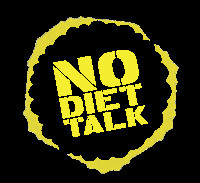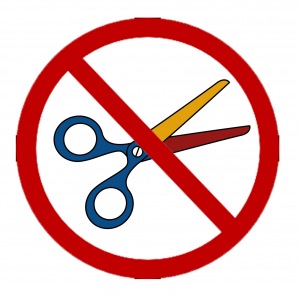“It was easier to say ‘don’t diet, riot!’ when I was a size twelve” (new writing)
January 11, 2013 § 3 Comments
I’m working on a paper that explores feminist approaches to economic justice through the metaphor of that old feminist staple, body image. Economic issues are less well-trodden ground in the feminist canon (with awesome exceptions like Folbre, Waring, Fraser), and I hope to expand my own thinking on economic issues by using some of the wisdom from a more familiar feminist territory, the body.
Sitting on the balcony of a small apartment I share with a friend at university, I drink wine and discuss that feminist staple, body image. The friend I share a drink with is a classic of the student activist scene I belong to: loud, anarchic, bisexual, and, I think, joyously fat. I am naively shocked, therefore, when she tells me that her body shape bothers her: “It was easier to say ‘don’t diet, riot!’ when I was a size twelve”, she states, swigging her beer. The atmosphere becomes confessional. I smile awkwardly at her words, aching with the complexity of it all, and there my memory dissolves into the hazy, warm Newcastle twilight.
My friend’s statement has stayed with me for years. She reminded me that it is easier to make a counter-hegemonic claim when you have no investment in the outcome, and perhaps more importantly, that it is harder to make claims about change to dominant discourses when the counter-hegemonic wisdom does not fit anymore. This is how I felt when I began to wonder, both despite and because of my involvement with trade unions and women’s groups, just why the alternative economic doctrines of social democracy or socialism did not seem to fit anymore. If these doctrines did fit, then their supposed champions were sorely lacking confidence in prosecuting the case. How then, could I fruitfully think about gender and economic change-making, when Stuart Hall’s left melancholy had taken hold with a vengeance? It occurred to me that I was something like a yoyo dieter who could not accept that the old wisdom was not working. I was losing the battle with the weight of the problem of economic inequality, yet I felt compelled to do something – something – to arrest the creeping scales of oppression.
Barry cuts we bleed: thoughts on community service cuts
August 28, 2012 § 1 Comment
I wrote this for the F Collective site yesterday, and while I’d like to have time to write a more nuanced analysis soon, I wanted to publish it here also.
—–
It’s Monday morning and I wish I’d drafted this post last night, but I was drafting an email update instead; inevitable tension between running a website and doing the grunt work of activism.
I was drafting an email to the people who’ve signed a petition I started the Friday before last – NSW Premier: Don’t cut community organisations. I started it in response to this article by Adele Horin (who has since retired, and damn we’ll miss her), which said that:
An internal review by Community Services, part of the Department of Family and Community Services, has recommended reducing funding to at least seven organisations, including the Welfare Rights Centre, Lifeline (Sydney and Sutherland), Redfern Legal Centre’s financial counselling service and the Gay and Lesbian Counselling Service.
Alternatively, they may be moved to the aegis of the Department of Health, or to Ageing Disability and Home Care without funding.
This should come as no big surprise to those who follow Australian politics. We’ve seen what has happened in Queensland to Sisters Inside amongst others in the wake of the QLD election of the CLP. And as feminists, we know that community services are not valued by neoliberals, anyway.
Community service workers don’t, after all, produce any commodity with a market value. They do, on the other hand, perform care work, work that would otherwise be done piecemeal and unpaid and often in the isolation of the home, by feminised individuals. Community services and the workers who run them (to ape the language of mainstream economics) produce cared-for human beings, folks who might be hard-up but know that at least someone is there for them.
Feminists set up and won the funding for many of these sorts of community services. They wanted to create a world in which resources were available for care and care work was paid. This was an extension of a broader project of creating a social democratic State in which education and health was available to everyone as part of a social wage. While the State is often used to monitor and discipline people (as with income management), it has been concurrently used to break down oppression.
Cuts to services are about further dismantling the (never completed) social democratic project. While this dismantling has happened on both sides of politics, it is often starkest under Liberal governments. The results are not pretty. When Barry cuts, women, queers, poor folks, the homeless, people of colour and Indigenous people are the ones who are going to bleed.
Given that the State is so often used to oppress and discipline, why should we keep fighting for our services, those we use and work in? I think that in this fight there is hope to keep recreating and reclaiming the State as we want it to be. Broadly, I want services that are conducive to justice and equality, so I definitely want to keep those services that currently exist. As Rosa Campbell said recently:
If service users and workers and teachers, parents, students and community members stood together to defend the welfare state, we would be best placed to re-imagine it.
Sign the petition: NSW Premier: Don’t cut community organisations. Tweet it under the hashtag #BOFcutswebleed and @BarryOfarrell. F is @the_fcollective. Send it to your family, friends and relevant e-lists – let’s start conversations.
This is just the start. We can fight for change in ways that create the world we want. I’m linking to this UK Uncut video as inspiration.
I’ll keep you updated on how you can get more involved as the campaign progresses.
The comment section is yours, so let’s brain storm: how would you like to fight to keep the services that care?
The beautiful featured image is by Amanda Parkinson, SMH aspiring photojournalist of the year. Used with permission.
The latest
June 8, 2012 § Leave a comment
Well, it’s been a while and I’ve got two things to add, both from the F website.
I edited a post by Eva on income management in Bankstown:
In March this year, there were around 80,000 parents on the parenting payment officially registered as job hunters. There are maybe another 50,000 or more sole parents who have already been placed onto Newstart as their children are eight or more. They will be joined shortly by most of the 80,000 job seekers above, as announced in the budget. Managing on the sole parent payments is already hard, but doing it on the lower rate of Newstart is almost impossible.
So any changes to policies on these payments is of interest to feminists.
I also put together a storify story on F’s latest forum. You can join the conversation on Twitter with the #fcollective tag.
[View the story “Doing feminism: media representation and family violence” on Storify]
The gorgeous image above is from Flickr using Creative Commons License, by Caterpiya.
In New Matilda
February 9, 2012 § Leave a comment
I have an article on New Matilda as of yesterday afternoon.
I love New Matilda and think they provide a great platform for slightly more in-depth news articles and argument, so I was stoked when they were interested in the initial pitch and then when they took the article.
My piece goes into the history of the recent equal pay decision and asks what equal pay means now.
You can find it here.
And a little excerpt:
Equal pay, like the silent notion of gender to which it refers, is a notoriously sticky concept. It initially meant removing the disparity in pay between men and women performing the same work. This was entrenched in the 1912 Fruit Picker’s Case, which set women’s wages at 54 per cent of a man’s. Equal pay for equal work was won in 1969.




